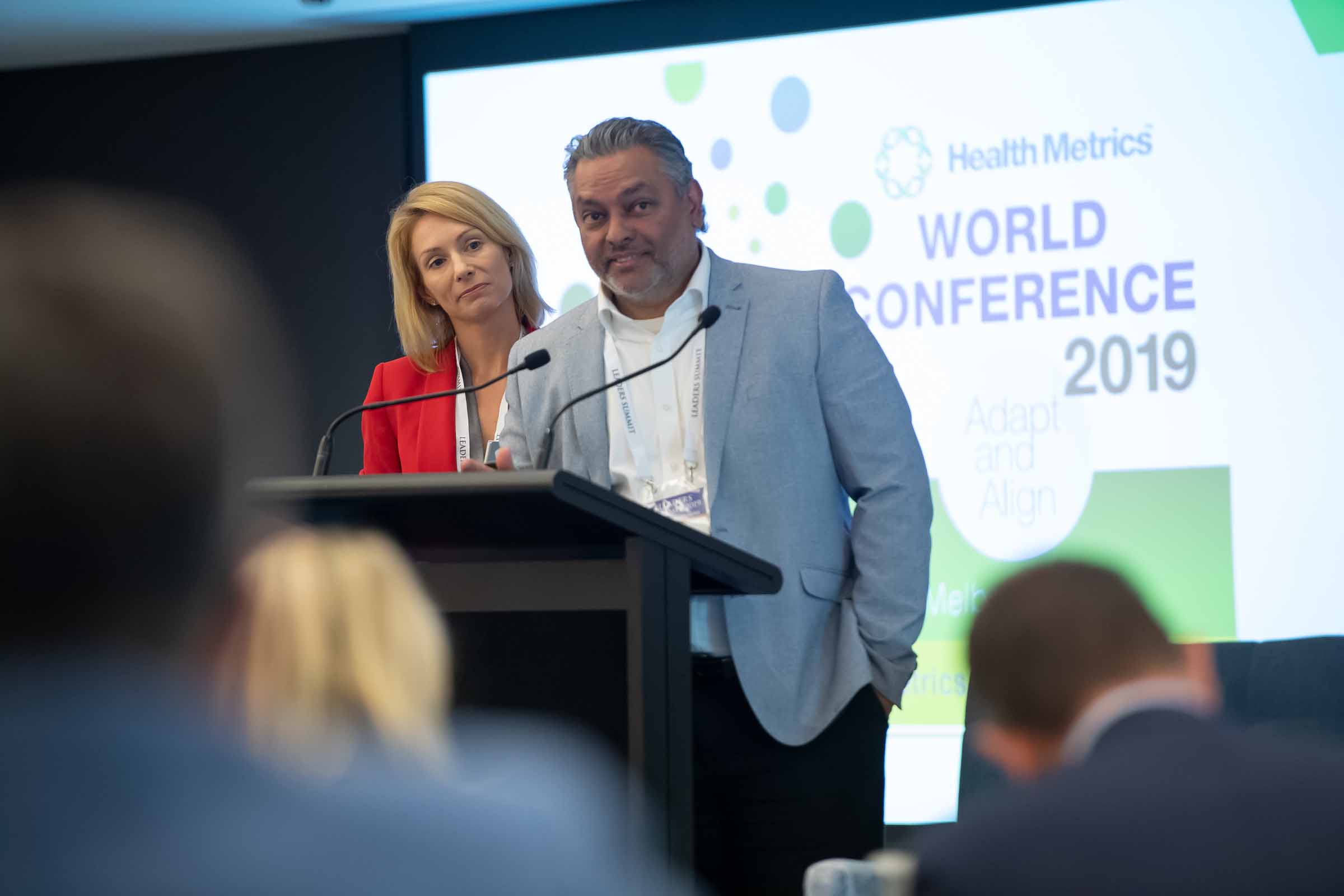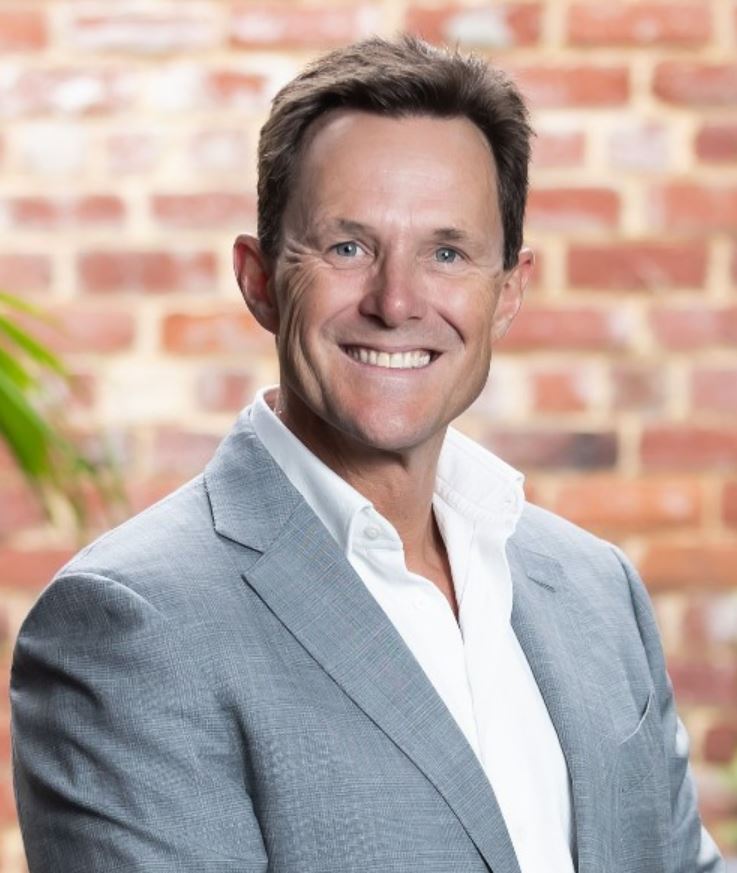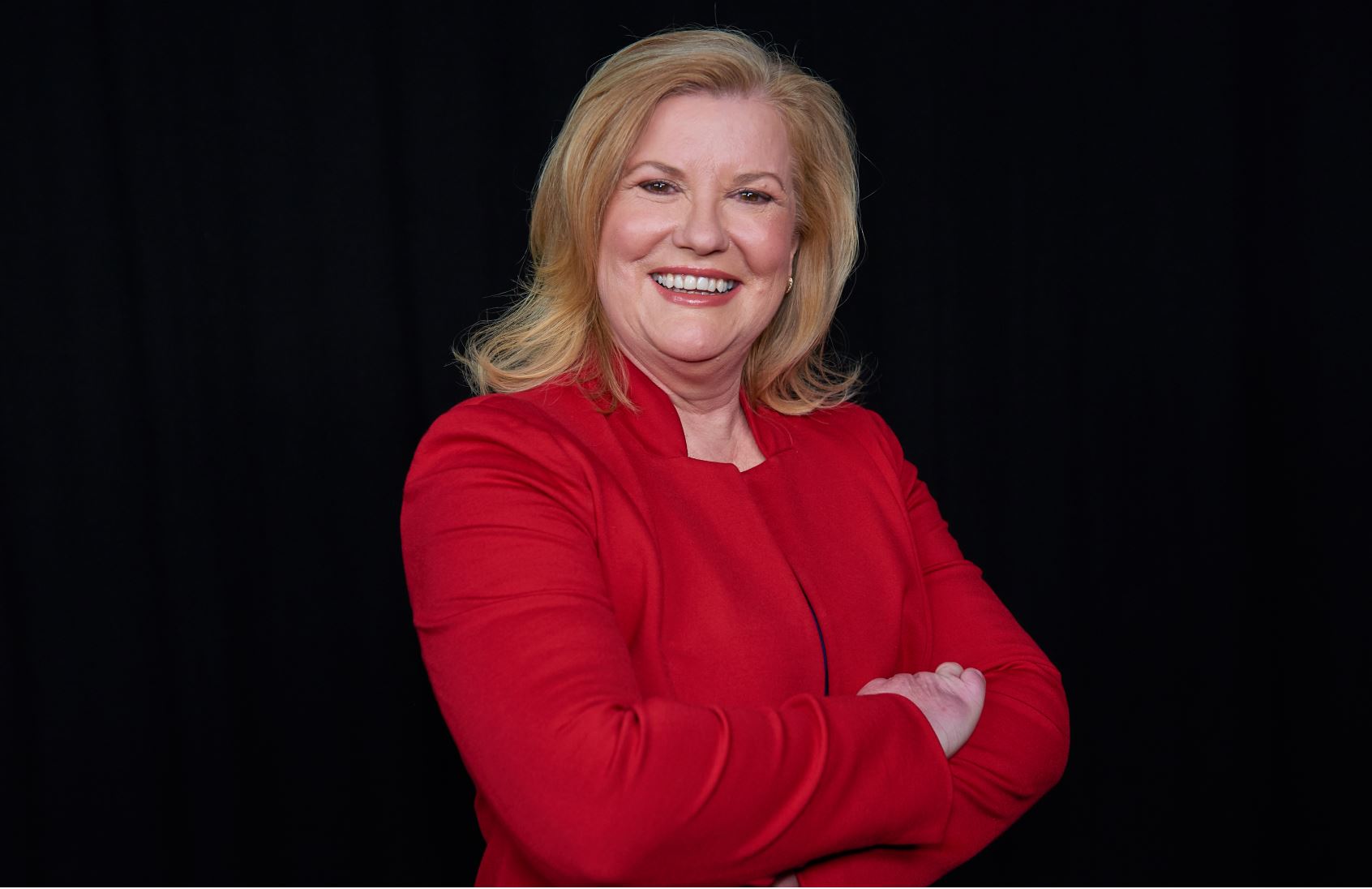We asked Ian Yates (pictured above), Steven Strange, Chris Mamarelis, Mike Baird, Cam Ansell and Natasha Chadwick to share what they thought of the 124 recommendations put forward by the Senior Counsel – and there are certainly some questions.
Ian Yates
The COTA Australia CEO stressed that his response was preliminary as COTA is still consulting with consumers and its sector colleagues before providing a formal response on the recommendations to the Royal Commission.
He also underlined that all of the funding and financing propositions were not presented – an area in which COTA has already responded in some detail.
Despite this, Ian says there are many recommendations that COTA supports, in particular the new Aged Care Act based on human rights principles.
However, he says COTA will asking the Commissioners to look closely at what should simply be a principle and what should be legally enforceable in the ACT.
“We want to see a rights-based system so that the regulator can enforce rights, and is not just always having to look for serious harm,” he stated.
He also questioned whether some of the other recommendations are consistent with a human rights-based approach – namely, that case management should be the responsibility of the provider.
“We have argued that care finders and case managers should be separate from providers,” he said, adding this was “essential to even up the market”.
Independent Aged Care Commission of concern
COTA will also be asking why certain services will be means tested under the recommendations and others will not.
“Personally, I think we should be saying this is the total costs of care and this is the safety net for the consumer,” he said. “The rationale for that is not entirely clear in what they’ve presented.”
The recommendation for a new independent Aged Care Commission, with one body being responsible for policy as well as regulation and complaints is also of concern to the COTA head (see the Aged Care Commission story for more commentary).
“One always has some hesitation about a structural answer to a policy and deeper strategic problem,” he said.
“It doesn’t matter how it is structured; aged care is still part of Government. Why will it in the long run be any different to a Department?”
“We spent many years getting regulation and complaints to be independent of the Department so there is concern about it all being back in one body.”
Ian also pointed to the need for further clarity around other points. For example, while COTA agrees that aged care should be on demand, he notes the recommendations don’t outline waiting times for assessment.
Steven Strange
 The Health Metrics founder and CEO (pictured right) says he gives the recommendations an A – but not an A plus.
The Health Metrics founder and CEO (pictured right) says he gives the recommendations an A – but not an A plus.
“I think it’s a massive undertaking,” he said. “I applaud the thinking behind it but the execution will be challenging. Costing the whole thing would be a big exercise in itself.”
Like others, he commended the strong focus on resident advocacy and human rights as well as the workforce recommendations.
In particular, he pointed to recommendation 39 on aged care workforce planning, specifically the measures to address workforce needs through immigration and changes to visa arrangements.
“They are all linked to each other so if you are planning to get rid of the home care wait list by December 2021, you need to know how you’re going to achieve that.”
The CEO also backed the recommendations to incentivise innovation and staffing requirements based on resident hours instead of mandated ratios – “that’s a much better metric,” he added.
“The prescription for a new bureaucratic landscape to replace the old one and the structure makes sense.”
Resident hours requirements amount to 33% hike
However, Steven cautioned that though the recommendations are well-written, their implementation will be complex – and expensive.
Health Metrics’ analysis of the 215 minutes required under the resident hours amount to a 33% hike in carer hours.
“If you have 1,000 beds, that’s about a $10 million hike in labour costs. Notwithstanding all the other things for training, professional development, etc. Where will all this money come from? Extrapolated, that puts page 37 [of the recommendations] at around $3 billion. Plus, the $7 billion to clear the home care wait list. And that’s not everything.”
He also questions where the workforce will come from, especially given the impact of COVID on immigration.
“What the Government said is true, you just can’t turn the tap on,” he said.
In terms of the recommendations for data standardisation, Steven also warns that this would need to be carried out carefully, saying that New Zealand’s experience of standardising data has served as an example of what not to do.
“It’s also difficult to cost data,” he concluded.
Chris Mamarelis
 The Whiddon CEO (pictured left) – who took part in the hearings in Perth and Sydney – says the recommendations “essentially represent a sector reboot and for those involved, or at least monitoring the hearings, it should come as no surprise”.
The Whiddon CEO (pictured left) – who took part in the hearings in Perth and Sydney – says the recommendations “essentially represent a sector reboot and for those involved, or at least monitoring the hearings, it should come as no surprise”.
He is pleased to see that the recommendations appear to reach into most of the key impact areas, including quality and care, governance and accountability, workforce, sustainability and funding, advocacy and user rights, along with some of legislative and regulatory provisions.
“Importantly innovation and research are also captured which as we know is essential if we want to see our industry flourish,” he said.
Chris says he remains optimistic that the current political climate and public sentiment will see the Commonwealth embrace the recommendations, act and ultimately support the sector to rebuild.
“As an industry we also need to embrace the change, engage and support our people, our communities and those we are entrusted to care for, so they are very much a part of these next big steps that we are about to take,” he stated.
New Aged Care Act to provide “foundation piece”
The CEO describes the recommendation to replace the Aged Care Act as far reaching and the foundation piece to the reform.
He also believes there is a focus on holistic care through recommendations that focus on areas such as diversity, Aboriginal and Torres Straight Islanders, younger people in care, cultural safety and of course innovating our models of care.
“Pleasingly this last point is supported by the recommendation to establish and fund a dedicated Research and Innovation Council while also establishing grants for areas such small scale living.”
Chris also thinks the workforce recommendations will be key in ensuring people working in aged care are skilled, equipped and supported to provide the best levels of care as well as the recommendations directed towards funding.
“The independent pricing authority combined with a new funding indexation model are a huge step forward,” he said.
“Lastly, I don’t think we should underestimate the importance and impact of the recommendations pertaining to home care. Releasing the existing waiting list, achieving funding parity with residential aged care and a revised funding model will not only see the exponential growth of home care, it will have a significant impact on residential aged care operations and the workforce as a whole."
He doesn’t believe the Counsel Assisting has missed much.
“I really think Counsel Assisting have delivered a comprehensive blueprint for reform. Once the Commissioners review the document and make their final recommendations, we need to ensure the Commonwealth delivers on their commitment to act quickly and importantly hold them to account.”
Mike Baird
 The new HammondCare CEO (pictured right) says he believes the recommendations are comprehensive and well-directed and will make a “significant difference” to the sector.
The new HammondCare CEO (pictured right) says he believes the recommendations are comprehensive and well-directed and will make a “significant difference” to the sector.
“The challenge of any Royal Commission is to get to the issues and start to practically identify ways forward and things that can’t happen again,” he said.
“I think fundamentally the themes of these recommendations to me is what we have should,” he adds, saying they outline a plan to move from a system where someone needs care has to fit in the system and turns it on its head to how can the system help this individual who needs support and care.
“I think that’s a fundamental shift needed to get much more power back to consumers.”
Mike also welcomes the recommendation that 20% of residents be interviewed every year.
“That will give a whole different lens and perspective that’s really important,” he added.
The focus on workforce and the push to fund education and training also got the thumbs up as being “long overdue”.
“They have gone a bit further to articulate the size of the challenge which is another 50,000 care workers by 2024.”
Providers need to be prepared to provide accountability
The CEO says there will need to be a move on wages to ensure these are aligned with the health and disability sector, but the recommendations should create a more skilled workforce with the capacity to respond and understand care needs and build a pipeline of care workers.
The focus on transparency and accountability through star ratings and increased financial reporting was also an important step, he said: “I think that’s accountability providers have to provide.”
Finally, Mike says he is very pleased to see the focus on care being relationship based and not transactional.
“That was quite a remarkable insight,” he said. “It’s what HammondCare lives day in day out, but to acknowledge it as a priority though was perfect and something we strongly support.”
He does feel that some of the detail on social supports is missing – specifically, emphasis on quality of life and the benefits of some broader social programs and engagements and activity-based programs can have.
“I also want potentially apprenticeship style training as opposed to qualifications,” he said. “I want people to be able to work as the same time as they move towards accreditation and the reading on that wasn’t clear.”
Cam Ansell
 The Ansell Strategic Managing Director (pictured left) says he was “pleasantly surprised” by the Counsel Assisting recommendations, adding that the serious structural reform put forward takes the form of the 2011 Productivity Commission ‘Caring for Older Australians’ report which is a “fantastic approach”.
The Ansell Strategic Managing Director (pictured left) says he was “pleasantly surprised” by the Counsel Assisting recommendations, adding that the serious structural reform put forward takes the form of the 2011 Productivity Commission ‘Caring for Older Australians’ report which is a “fantastic approach”.
“I thought it was going to be another review with incremental changes on the existing system but they have come up something quite reformist,” he said.
However, he is concerned that the Government will be unwilling to undertake substantial reforms, particularly the independent Aged Care Commission – and the four-month lag between the recommendations and the Final Report.
“The fall off in enthusiasm by the wider community because of the passage of time and Christmas may lead the Morrison Government to respond in form and not in substance.”
Cam is also wary of some of the targets set under the Counsel Assisting’s timeline, particularly the 31 December 2021 deadline to clear the home care wait list.
“Something more achievable would be harder to discredit,” he argues, noting that while it is a fantastic recommendation, the workforce systems and supplies need to be in a position to meet the increased demand.
Creating a roadmap for the Commissioners to clear the home care wait list
Ansell is now planning to work with some home care providers to provide the Commissioners with what could be achieved in the shortest possible time.
In terms of what is absent from the recommendations, Cam notes that they discuss the transition from a RAD based funding system to a DAP-based one without explanation of how the Government and sector deals with the RAD pool – the area on which Ansell has been lobbying the Government this year.
“We don’t want all this hard work to be undermined by a collapse that is reasonably foreseeable,” he points out.
While long-term financing didn’t make it into the list, the MD also makes a strong argument for the system to move to user pays and not rely on a hypothecated levy – the idea that former Treasurers Peter Costello and Paul Keating labelled politically unpalatable at the funding and financing hearings.
“Introducing a new levy on top of Medicare, the NDIS plus all of all fallout from COVID, I’m into sure what Government would want to fund it.”
Instead, he says better means testing is key to ensure people contribute to their own care.
Natasha Chadwick
 The NewDirection Care CEO and founder (pictured right) – and two-time Royal Commission witness – says she believes the Counsel Assisting recommendations will take aged care services in Australia to the level that the community expects.
The NewDirection Care CEO and founder (pictured right) – and two-time Royal Commission witness – says she believes the Counsel Assisting recommendations will take aged care services in Australia to the level that the community expects.
“The human rights based approach to ageing and aged care with a new Act to enable the recommendations commencement which values people – both the people utilising services and the people providing the service (staff), provides the level of flexibility that I have also been promoting, increases public awareness, preserves or restores capacity to enable a meaningful life, that understands the importance of allied health in achieving enablement and funds these requirements appropriately, these recommendations will enable organisations like NDC to continue to provide the innovative services and accommodation that the Australian community deserves,” she stated.
Natasha has been advocating to the Royal Commission for a level of flexibility and greater certainty around funding for assessed needs, portability and agnostic to setting i.e. where the service is delivered and she says the majority of recommendations meet these measures.
In particular, she singled out the recommendations for an Independent Pricing Authority, Inspector General and Commission responsible for funding and regulation.
“These are the foundations to ensuring that aged care services are appropriately priced, funded by government and users of the services and standards are in-line with community expectations,” she said.
Support for reablement approach welcomed
The CEO also welcomed recommendations 17 and 90 around care and support to preserve and restore capacity and funding to incentivise an enablement approach in residential care.
“This is an important recommendation that will enhance the model of care provided at NewDirection Care and finally to be funded appropriately for this service we already provide.”
Recommendation 8 for residential care to include allied health, recommendations 19 and 42 for designing for diversity and training of staff and improved remuneration for aged care workers and recommendations 62 and 64 for a new primary care model to improve access and access to specialists and other health practitioners through multidisciplinary outreach also get the tick of approval.
Given NewDirection’s micro community model, the recognition of ‘small house’ models in recommendation 57 is also key for Natasha.
“This is a very important recommendation that recognises the importance of the small housing model in providing an environment that enhances a meaningful life in residential aged care today and into the future.”
However, the CEO remains concerned that innovation has the potential to be stifled particularly with respect to the Governance recommendations which she says appear – on the face of it – to require Government to have an even greater input into the general operations and running of an aged care business.
Natasha warns this could result in aged care operations being run as “quasi government agencies”.
“It will be vital that this is balanced when the recommendations are written into the new legislation and then reviewed through the new Commission,” she concludes. “Overall, it would appear that the recommendations will go a long way towards the ‘new direction’ in aged care that the Commissioners envisaged and that we currently provide through our innovative model at NewDirection Care.”
“And of course recommendation 82 that provides for an increase in the basic daily fee of $10 upon a provider meeting certain obligations, this increase in funding cannot come quick enough in the current operating environment and should in fact be immediate.”










